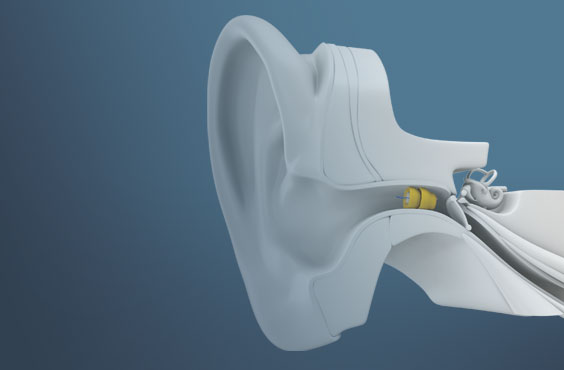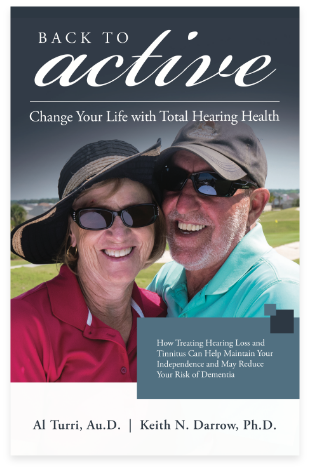Gifts are available on a first come, first serve basis. One gift per household.

How Do I Know if I Need a Hearing Device?
The NIH estimates that 48 million people in the United States could benefit from the use of hearing devices. Hearing loss, though a scary thing, is more common than you might think. In fact, nearly 33% of individuals age 65 to 74 experience symptoms and if you are 75+ then its 50%. More often than not, hearing devices are the best treatment option to improve hearing, encourage communication, enhance quality of life and improve cognition including memory.
So, how do you know if you need a hearing device? If you experience one or all of the below hearing related problems, it’s a good time to schedule an appointment with a doctor of audiology.
What is Hearing Loss?
One of the most important parts of determining your treatment plan or eligibility for hearing device technology is to understand what your body is going through. This is why it is important to understand what hearing loss is, and how it is characterized in both an every day and medical setting. Hearing loss is when one’s ability to hear is reduced. It can be caused by injury, congenital defects, or more commonly by the natural aging of the auditory system. Age-related hearing loss, known as presbycusis, is a gradual process that erodes one’s ability to hear. High-pitched or high-frequency sounds are typically affected first, followed by lower frequency sounds as the condition progresses.
You Constantly Need to Increase the Volume
If you find yourself constantly needing to raise the volume on your television, telephone, or radio, you may be experiencing hearing loss. This symptom translates into everyday conversations with your friends and loved ones and can feel isolating. If you catch yourself constantly asking others to speak louder or to repeat themselves in the middle of a conversation, your hearing may be impaired. It can be incredibly frustrating to experience hearing loss that interferes with communication, so take note of these situations when you’re getting ready to speak with a doctor of audiology about your experiences.
You Can “Hear” People, But Not Understand Them
Hearing loss is very rarely cut and dry. You might be able to hear someone speaking to you, but you misunderstand or misinterpret them. This is a common symptom that is often overlooked by patients confused by what’s happening to them. The reason for this phenomenon is because of the pitches and frequencies that you’re able to hear, and those that you are not. When you experience an inability to hear high pitched or high frequency sounds, you’re often missing integral parts of a word or sentence. Thus, you will hear the sounds but not every tone will register. Keep in mind that noisy environments will exacerbate most, if not all of your hearing loss symptoms.
Your Ears Are Ringing
Age-related hearing loss is often accompanied by a condition called tinnitus. Colloquially regarded as a “ringing in the ears” tinnitus is a ringing, buzzing, or whirring sound that can be constant or pulsing. If you experience ringing of the ears – an audiologist may diagnose you with tinnitus. The symptoms of tinnitus might be more intense at night, when additional environmental sounds are dampened. Suffering from tinnitus can be a frustrating ordeal, and one that can be treated by the use of FDA approved technology.
Find a Specialist
Now that you know the signs and symptoms of age-related hearing loss, there’s only one thing left to do to determine if you need treatment. Take inventory of the symptoms you experience and schedule a hearing consultation with a doctor of audiology at The Villages Health. Your audiologist will be able to provide you with a proper diagnosis and help you construct a treatment plan that may or may not involve the use of hearing devices, so you can make the right decision for your needs and unique lifestyle.
More Resources